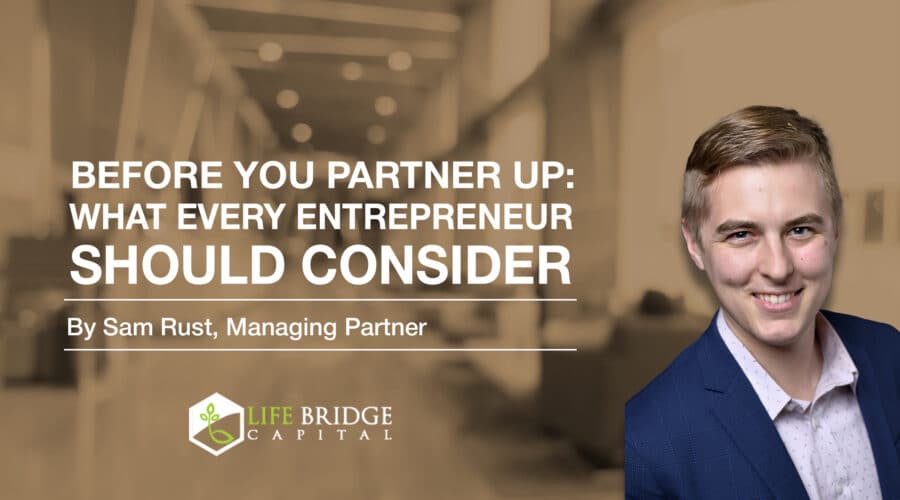Is it possible to juggle work and real estate investing? While it may require hard work, it is not impossible to find success in real estate while doing a full-time job. Many real estate entrepreneurs started their journey in the space as part-timers. In this #Highlights episode, we look back at our conversations with Sridhar Sannidhi and business partners Hersh Rai and Nicholas Vu.
Watch the episode here:
Listen to the podcast here:
Sridhar shares how he manages to work full time while being a passive investor in multifamily and commercial real estate. Meanwhile, Hersh and Nicholas believe that the key to success in real estate investing is time management, open communication, and utilizing technology to one’s full advantage. Enjoy the show!
Key Points From This Episode:
- Sridhar shares his background, his real estate journey, and his superpower.
- How to manage your time to work full-time and grow a successful syndication business.
- How Sridhar gained a high level of self-discipline.
- The hardest part of the syndication journey so far for Sridhar.
- Hersh and Nicholas explain why they decided to get into real estate while in the process of obtaining Master’s degrees, and after graduating from the US Naval Academy.
- How their drive to give back guided their decision to choose to specialize in multifamily with the Veteran Pride Investment Group.
- The ways in which good time management has helped the team be much more efficient and effective.
- The importance of an open line of communication and working together as a team to get things done.
Tweet This!
“(I’m) making sure that I’m making myself a comfortable power, these are the active things that I need to do today and once I finish those activities, I go to bed and this imply and my top developed in all the period of time.” – Sridhar Sannidhi
“Once we start seeing the results then the emphasis on putting more effort will come into play and making sure that things are not getting delayed because we don’t want any of the investors to get upset.” – Sridhar Sannidhi
“We kind of realized the benefits of multifamily pretty early on, like how economies of scale could let you really grow your business a lot quicker and also honestly make a bigger impact.” – Nicholas Vu
“Our major concepts all boil down to time management, coming from a military school or military academy, you learn how to definitely effectively manage your time, whether it’s working on the weekends, while you’re over there and trying to find the two-hour window to relax, or whether you have to power through your capstone, in order to get to the finish line before graduation over there.” – Hersh Rai
Links Mentioned:
WS756: Sponsoring Deals While Working Full-Time with Sridhar Sannidhi
Veteran Pride Investment Group website
WS790: Active Duty Time Management For Multi-Family Success with Hersh Rai & Nicholas Vu
About Sridhar Sannidhi
Sridhar Sannidhi graduated with a Master of Science in Information Management and Computer Science Engineering. He worked in the IT industry for more than 28 years in Finance, Insurance Accredited, Deal Syndicator, and as a Passive Investor in Commercial Real Estate. Sridhar actively seeks value add and or Stable properties in commercial real estate.
He has more than $125 million in Assets under Management Co-sponsored including 1329 units in 5 multi-family complexes in Texas. He has passively invested in over 4300+ multi-family unit syndications in the US (over 100 mil USD). Sridhar is an expert in Financial Analysis and Statistical modeling. He is a highly collaborative, focused, and results-oriented team player. He loves to travel, watch movies, and finds joy in participating in Charity events.
His journey into real estate started as he began seeking multiple sources of income for his preferred lifestyle. He analyzed multiple diversification options and decided to build a steady income portfolio with less risk. He attended financial and real estate seminars and found fit for his needs. As of current, his real estate experience includes investing in International Multifamily and residential properties for more than 20 years, and started investing in US multifamily and commercial in 2017.
About Hersh Rai
Hersh Rai is a Managing Partner of Veteran Pride Investment Group where he focuses on asset management, acquisitions, and investor relations. He also focuses on creating streamlined processes to create efficient operational flow through the use of technological solutions. In addition, Hersh is a co-host of the Multifamily Opportunities via Values, Education, and Socialization Meetup (MOVES), a virtual meetup that aims to teach people about multifamily investing. The show provides a platform for guest speakers to educate attendees on topics related to business and real estate investing. He hopes to use multifamily investing to inspire and serve others to achieve financial freedom and give back to his local community.
Beyond multifamily investing, Hersh is an active-duty Naval Officer who specializes in Cryptologic Warfare. Currently, he is pursuing his Master’s degree at Purdue University in Computer and Information Technology. His research efforts are in support of the Department of Defense (DoD). Hersh holds a dual B.S. in Computer Science and Information Technology from the United States Naval Academy. He graduated in May 2019.
About Nicholas Vu
Nicholas Vu is a Managing Partner of Veteran Pride Investment Group where he focuses on asset management, underwriting, and due diligence. He also focuses on inventing and identifying creative solutions to increase asset revenue. In addition, Nick is a co-host of the Multifamily Opportunities via Values, Education, and Socialization Meetup (MOVES), a virtual meetup that aims to teach people about multifamily investing. The show provides a platform for guest speakers to educate attendees on topics related to business and real estate investing. He hopes to provide for his investors, partners, and tenants by creating transparent and trustful relationships. Through multifamily investing, Nick hopes to have a positive impact on the communities in the areas where he invests.
Beyond multifamily investing, Nick is an active duty Naval Officer who will be going to Pensacola, FL to attend flight school in pursuit of becoming a Navy Pilot. Currently, he is pursuing his Master’s degree at Purdue University in Mechanical Engineering. His research efforts are in support of the Department of Defense (DoD). Nick holds a B.S. in Mechanical Engineering from the United States Naval Academy. He graduated in May 2019.
Full Transcript
EPISODE 1483
[INTRODUCTION]
Whitney Sewell (WS): This is your Daily Real Estate Syndication Show and I’m your host, Whitney Sewell. Today we packed a number of shows together to give you some highlights. I know you’re gonna enjoy this show. Thank you for being with us today!
[INTERVIEW 1]
WS: Our guest is Sridhar Sannidhi. Thanks for being on the show Sridhar.
Sridhar Sannidhi (SS): Thank you for inviting me on to the show Whitney.
WS: Yeah, Sridhar is a computer science graduate and has worked in major Wall street firms in IT roles. He’s passionate about business, in his free time, he enjoys long road trips and nature but Sridhar is doing deals while also working full-time and I think there’s a lot of listeners who can relate to that, I know I could for a long time and so just looking forward to hearing his story and how he manages that, because it’s not easy in this business and to do it well, Sridhar, welcome to the show, thank you again for your time this morning early and just grateful.
But give us a little more about your real estate business and what you’re doing in the syndication business and let’s dive int your super power.
SS: Sure, My name is Sridhar Sannidhi and I started this syndication three years back and since then, I never looked back on the syndication in multifamily around so I invest passively in multifamily deeds and other investment opportunities. I started this business after I tried to acquire single-family portfolio but I tried for almost a year, I could not buy a single house and a single family and then I thought whether I should get into an IT related company and they started brain storming and they try some IT startup.
And then I realized that before I could gain anything else, pretty good take up the video so that’s when I started exploring other avenues. In that process, I bumped into commercial real estate and initially, I was looking to buy some industrial buildings or some retail shopping malls, some other commercial office space, those are the areas I was looking in and one day, I happened to be thrown of the seven variety meetups and I bumped into a mentor and he explained about multifamily.
That was my first step in direction to multifamily business. Prior to that, I have zero knowledge with multifamily and how it operates in syndications and anything like that. Soon after that conversation, I wanted to join that mentorship program but I had a few other commitments so I had to wait a few months before I joined that.
I joined the program in March 2018 but past few months, I was very skeptical. I thought that senator ended up program, I signed up for and without knowing much, because when you go to the Z and try to get motivated to do quickly and I took the quick action but I did not follow through for a few months but I started investing passively even prior to joining that mentorship program and I waited for six months to see the positive passive income checks.
Once I started to see the checks, then I realized there’s some potential here and I started network equal. I found one good trend as a cause pods and we have been friends since then and we did so many core sponsorships and so what I would –
WS: Nice, you’re doing your own deal snow. I mean, you’ve come along ways in just a few years.
SS: Yes, it’s almost three years and in three years I did five syndications for over 1,329 plus units as a TP our core sponsor, whatever you call. I call passive investments worth what the 300 plus doors to total 5,500 doors in three years.
WS: Nice, you’ve learned a lot in a short period of time and then very active, you’ve made it happen, you’re still working full-time while starting your syndication business and doing all those, tell us a little bit about making that happen and being able to just manage that time. I think there’s a lot of listeners who are attempting to do the same thing who are wanting to be an active sponsor, however, most people have to work full-time and do their real estate business at the same time to get started, how did you manage that?
SS: I was in Wall Street, I worked in Wall Street for 18 years in IT roles. I wanted to do something on the side but my commute plus work hours could not allow me to do anything on the side. I still – because of the fashion, I used to invest abroad so that someone else would take care of this properties for me.
And six and a half years back, I relocated to Dallas and that juncture, I had more free time because I don ‘t have any commute after that. I picked that job, I made sure that I would not go for long-hour type job and then I had the flexibility and the most I would allocate additional two hours in a day if you found anything.
I should be finishing my work-related activities in two hours — so that is technically eight plus two, so 10 hours, and that’s my allocated time for work. After that daily four hours I allocated for my real estate activities. Now, I’m not spending four hours because initial stages I was spending four hours to do the deal analysis and networking with people and learning new concepts and learning where the aspects of this deal cycle.
This gladly will take a time after work minimum four hours I allocate for real estate. Anything beyond that is for my personal time so it’s like literally my four hour commute time has become my real estate time.
WS: Nice. You know, it’s just interesting to hear, a structured time, right? You had to say okay, this is the time that I’m doing real estate. I’m going to devote this much time to it. Obviously that makes for a long day and how did you keep that up and you know, did you have family or other people that were just saying you know, Sridhar, this is crazy, you’re spending this much time doing all this.
SS: Yes, I’m married for 20 plus years now with two high school aged kids, luckily, I think I can focus more on my business because they’re in high school, they can do their activities on their own, and that allows me to do most of the real estate activities and focus on this one.
My personal activities mostly I push it for weekends and a daily work for every travel and personal stuff so I would keep the same attitude like if I ever were in New York City, I was traveling to downtown for 4 hours and wasting that in travel time. That four hours I made sure that I’m allocating to the real estate.
Making sure that I’m making myself a comfortable power, these are the active things that I need to do today and once I finish those activities, I go to bed and this imply and my top developed in all the period of time.
WS: It’s interesting you bring that up and I have been asking almost every guest now just about I believe, that self-discipline is so important to be successful and pretty much any business. How did you gain that high level of self-discipline?
SS: To me, I think initially it was uncertain once I started seeing money — so I think that’s going to – that gave motivation to become more and more disciplined because once we start seeing the results then the emphasis on putting more effort will come into play and making sure that things are not getting delayed because don’t’ want any of the investors to get upset.
WS: True, what’s been the hardest part of this syndication journey? I mean, to get to where you’re at now?
SS: Hardest part is like sometimes things go in a different direction than what we’ve planned. For example, in all of the syndications, I raised money to the extent I am supposed to as part of the syndication. All of a sudden, people had emergencies, seven of them had emergencies so in the last minute, all seven bailed out on me, within seven days to close, I need to clean that money.
Those kinds of things I did not expect. Now, I learned that my lessons will buffer more into my fundraised aspect and making sure that I have more people that watch for investing than what is needed.
[INTERVIEW 2]
WS: Our guests are Hersh Rai and Nicholas Vu. Welcome to the show, guys.
Hersh Rai (HR): Thanks so much for having us, Whitney. A pleasure to be here.
Nicholas Vu (NV): Thanks so much. I’m really glad to be here as well.
WS: Hersh and Nicholas are managing partners of Veteran Pride Investment Group, a commercial real estate firm focused on market rate and affordable housing acquisitions. Both Hersh and Nick are graduates from the United States Naval Academy and are currently studying at Purdue University for their master’s degrees prior to operational service. They found their passion in commercial real estate due to aligned values with the Veteran Pride Investment Group mission through helping within communities via impact investing. Currently, the firm donates 20% of its profits to nationally recognized veteran and first responder charities.
Guys, welcome to the show. I just want to be the first to say thank you for your service, just very grateful for that. I understand the commitment that’s required to make that happen and look forward to hearing more about that, and just this transition and how you’re growing your real estate business, doing all these things at the same time. I know the listeners, getting into this business, everybody’s wondering how do I manage all these things? How do I make this happen? You all have a great testimony to juggling all those plates at the same time. But give us a little more about who you all are and what you’re up to right now and let’s dive into who you are and your business.
HR: Sure. Thanks, Whitney, for having us. Pleasure to be here in your great show. And we’re really looking forward to a great conversation. So, I’m Hersh Rai. I am originally from India, but born and raised in New Hampshire for the past 22 years. I went to the Naval Academy, like you said, and I graduated as a cryptologic warfare officer in commission, now pursuing my Master’s in Computer and Information Technology. And while I’ve been at Purdue, I’ve had the opportunity to explore a lot of self-interested growth. And through that, I found real estate investing, specifically commercial multifamily, focusing on syndication and joint venture partnerships. And I’ve been able to establish a lot of great relationships and lifelong connections along the way. So, I’m really excited to share my story with you guys.
NV: And I’m Nicholas Vu. I guess I was originally from Redondo Beach, California, which is a beach town just outside Los Angeles. And yeah, like Hersh, just similar to Hersh, I went to the Naval Academy, and now here at Purdue pursuing Master’s in Mechanical Engineering. Yeah, I guess as Hersh mentioned, we both kind of got interested in real estate because we had an interest in finance and stuff like that starting off. And as members of the military, we learned about the VA load and some of there benefits that we as military members have and it kind of got us a foot in the door into real estate, but it was until we kind of got exposed to commercial multifamily through the [inaudible 0:03:08.9] group and through other members in there, who kind of taught us that people like us can also invest in commercial multifamily. And we were really fortunate to find Veteran Pride Investment Group and be able to align ourselves with that mission and really dive headfirst into commercial multifamily. And now we have potentially deal under contract and we’re excited to get started in this business. And we’re really excited to really grow in this space and continue learning, honestly.
WS: So, guys, why pursue a multifamily business right now when you all are on active duty, you’re working, and also pursuing your Master’s? I mean, you have so much going on. Why right now?
HR: Sure. That’s a great question. So, we like to bring it back to August of 2019. Nick and I first stepped onto campus at Purdue and we realized that we had only class, I think I class twice a week, Nick had a class three times a week, if I’m not wrong, and we were just like, it’s a lot of time that we have to ourselves outside of the normal academy time. From waking up at 5:30, to sleeping at the wee hours of the morning before you have to wake up again and do it all over.
Being at Purdue, we really had the opportunity to explore other interests, like I said, and it allowed us to branch into other areas. Graduate school is very self-focused and self-directed. So, it’s what you make of your time is the best use of your time. Working on classes and doing your thesis, I’m not going to say it wasn’t as much work as the academy but there is a little bit more free time not having as many military obligations during the day. So, that allowed us the time and the energy and to build our knowledge into the business and to really identify what kind of area we want to focus on in real estate and to achieve financial literacy growth.
NV: And to add onto that, we kind of realized the benefits of multifamily pretty early on, like how economies of scale could let you really grow your business a lot quicker and also honestly make a bigger impact because you mentioned the Veteran Pride Investment Group, they donate 20% of the profits back to charities. And as members of the military ourselves, it kind of hurts us knowing that there are people like homeless veterans who just don’t have a place to live. And we kind of want to give back to the community in some way, either through direct donations to these charities or by benefiting the community by improving the areas and even potentially provide housing for some of these places.
So, we found out that by aligning with this company, we could actually make bigger impacts with this little time we have here. So, we really liked multifamily because of those reasons.
WS: Nice. We’re going to talk about like finding deals and getting a deal, like your current deal under contract a little bit, but speak to a little bit about just managing your time, and how to make that happen? And we’ll get into maybe deal sourcing a little bit while doing all these other things. But how do you manage your time? How do you all communicate? How do you know who’s doing what, things like that?
NV: Yeah, definitely. So, honestly, Google Calendar and Trello have been super helpful. Just being able to – time block schedule because, yes, as Hersh mentioned, going from the Academy to here, there’s a lot more fluidity and flexibility. And honestly, kind of more rope to hang yourself with. So, there were some times early on when I just slept, like until 10 and stuff and didn’t really utilize my time to the best of its ability. So, I’ve learned to kind of block out certain times like, okay, this time is dedicated for real estate and this time is dedicated for my research. And then, okay, maybe night times has some meetings, reading some books, do that kind of stuff. So, I really learned how to kind of – honestly, people say time blocking, but really just getting your calendar out and finding which times of the days you have free to do what you need to do.
And with Trello, we’ve kind of started picking that up recently, but be able to find out each deal, see which stage it’s at and kind of allocate certain parts like, okay, this underwriting right now with me afterwards, if it’s current deal, for example, I’ll be contacting the broker and then while Hersh is going contacting ABD Brokers to get financing. So, we kind of have certain roles in our team that really help each other out. And from that kind of flow, I guess, we’re able to manage this best to our ability.
HR: Yeah, I like to add onto that, Whitney, that our major concepts all boil down to time management, coming from a military school or military academy, you learn how to definitely effectively manage your time, whether it’s working on the weekends, while you’re over there and try to find the two-hour window to relax, or whether you have to power through your capstone, in order to get to the finish line before graduation over there.
There’s a lot of different avenues to explore with time management, and you know, the failures, they’re not failures, they’re learning opportunities, which will help you structure how you move forward. And we’ve kept an open line of communication with our team, whether it be on a group chat, Google Drive is our lifeline. We use that coordinate a lot of different projects and tasks, as well as Trello. So, it’s using the technology that’s available to you, and trying to keep that open line of communication. If one of us can’t do something that day, then one of us will pick up the slack and try to make sure that we’re all doing our fair share to make sure that the deal is able to cross the finish line at the end of the day.
[END OF INTERVIEW]
[OUTRO]
Whitney Sewell: Thank you for being with us again today. I hope that you have learned a lot from the show. Don’t forget to like and subscribe. I hope you’re telling your friends about Real Estate Syndication Show and how they can also build wealth in real estate. You can also go to LifeBridgeCapital.com and start investing today.
[END]
Love the show? Subscribe, rate, review, and share!
Join the Real Estate Syndication Show Community:








